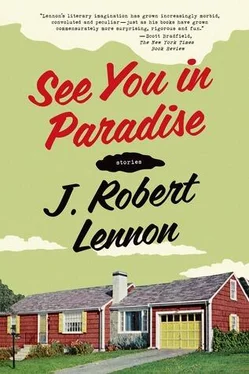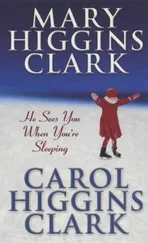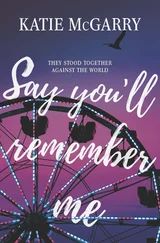
I had time to kill. The airport had a little mall, and the shops had themes: winter, health, wholesomeness. But it was August, and weary, begrimed travelers from all quarters haunted the unswept concourses. At something called High Plains Brewhouse I bought snob coffee and drank it over an abandoned USA Today. I read over and over, without comprehension, a graph charting the consumption of watermelon in America since 1954. I must have slept, because when I woke my flight was boarding.
Everyone on the plane to Seattle seemed to be drunk. They were possessed of an odd solidarity, as if they had all been friends for ages, though they lacked any common feature save their booze-fueled ruddiness and good spirits. I asked the slumped, frayed-looking woman sitting next to me what was going on. Her face fell into a happy leer as she remembered. “You see that guy?” she said.
“Him?” I was pointing to a thickset man wearing a big hat and waiting in line for the first-class bathroom a dozen rows ahead.
“He is a top-notch oil-and-gas lawyer from Fort Worth, Texas, and he has been buying us drinks for the last two and a half hours.” Apparently they had all been booked onto a flight scheduled to depart some time ago, but while taxiing their plane bumped a wing against a moveable ladder left out on the tarmac. Maintenance crews had to examine and possibly repair the damage. “They put us all on this flight, but we had to wait. So this guy gets up and says the drinks are on him. I put away a half-dozen margaritas with some high school teacher.” At that moment a bespectacled man wearing a loosened Mickey Mouse necktie shambled past and pointed at the woman with both hands. The two burst into giggles and the man moved on. “Oh, my,” she said.
“Did you hear about the crash in Denver?” I asked.
“That was in Omaha, I heard. You know, the plane was full of zoo animals from Africa, isn’t that terrible? Although no more terrible than a zoo. I believe they are inhumane, the zoos, not the animals. The animals ought to be let go.”
People were boarding the plane to cheers and applause, ducking in embarrassment or making jokes, exaggerating their drunkenness, staging pantomimed pratfalls. Nobody seemed to recognize specific seat assignments: they just stowed their carry-ons and stood around, as if at a cocktail party. Flight attendants touched their shoulders and spoke quietly and were met with roars of laughter.
In time, we took off. Passengers quieted, falling into boozy sleep. The new silence, backed by murmured conversations and the ambient rumble of the engines, reminded me of my mother’s hospital room, the sharp evening light softened through tan shades. She was telling two nurses a joke when I arrived. “So Moses says, ‘I’ll take a mulligan!’” They laughed together.
“Mom?” I said.
“Paulie!”
“How are you?”
The nurses bustled out past me, averting their eyes. “Actually, Paulie, I’m feeling much better.”
She looked like a party clown on a three-day weekend, her skin sallow from long days under makeup, her eyes tired and shifting.
“I’ll be out of here tomorrow,” she said.
“That’s great.” I riffled through the list of comforting phrases I’d compiled in my head. Had I misunderstood? Come right away, Paulie, she’d said, and I maxed out my credit card buying the ticket.
“Have you gotten your birthday present?” she asked me.
“No.”
“It’s coming. You’ll love it.”
“Terrific,” I said. “Thanks.” I wanted to sit down, though not necessarily here. The only furniture in the room was her bed and a nightstand, which a lamp shared with a paperback novel and her reading glasses. “Maybe I’ll go find a chair.”
“Why don’t you do that? Then we can talk.”
All along the ward I peered into rooms, looking for a free chair. There were a few, but the beds they stood by were occupied by sick people languidly manipulating their television remote controls or fitfully dozing. At the end of the hall I turned a corner and found an empty room. I went in. There was a neatly dressed bed, half-curtained and in shadow, and beyond it an unmade one under bright light. Two chairs were arranged at its foot. As I picked one up, preparing to carry it back, I noticed that the unmade bed was unmade because somebody was lying in it: a very old man with skin the color of Elmer’s glue. A discreet translucent tube was taped across his face, branching off into his nostrils, and he breathed in a rhythm so slow that I thought he must be in hibernation.
Except that his eyes were open. They were dark brown and brilliantly alive, like shiny coins half-buried on a desolate beach. He lifted his head — barely — and moved his lips. Words escaped in a whisper. I couldn’t understand them.
“I’m sorry?” I said, moving closer. “Sir?”
His hand had snaked out from under the sheet and he beckoned to me. I went to his bedside. “I didn’t mean to walk in like this,” I said. “I thought the room was empty.”
He shook his head, dismissing the apology. Closer, said his fingers. I brought my ear to his lips and smelled the bitter dryness of him, something like baking soda.
“Take it,” he said.
“Sir?”
“Take the chair,” he said. “Nobody’s using it.”
When I returned to my mother’s room with the chair, I discovered her chart hanging on a little hook outside her door: “Hemorrhoidectomy,” it said. Surgery performed by a Dr. Martinez, and a touch of codeine prescribed for the pain.

My flight to Marshall had been canceled. In fact, there was even some doubt it had ever existed. “I know we used to fly to Marshall at that time,” the ticket agent told me. “But I don’t think we have for quite a while.” His appearance put me briefly at ease; he wore his hair short and unkempt and he had a little black goatee: exactly the way young men in Seattle were supposed to look in 1995. I explained that I’d been booked on the flight; it had to exist. I gave him my name and he looked it up.
“You’re booked to fly to Madison, Wisconsin,” he said.
“Marshall. Marshall, Montana.”
He shook his head. “Look,” he said. “I can let you use the phone.” He reached beneath the counter and pulled out a receiver with a glowing keypad. “If you know anyone in town, have them come get you and bring you back in the morning. We’ll get you out of here then.”
“That’s all you’re giving me? A phone call?”
He frowned. “Take it or leave it,” he said.

Janine arrived in the same Ford Escort we’d shared when we lived together in Marshall. Idling, it made a new sound, as if a man were crouched under the hood sharpening a large knife. She leaned across the empty passenger seat and pushed open the door for me.
The back seat was full of cardboard boxes with what looked like all her winter clothes spilling out. She was wearing a Greek fisherman’s cap and a couple of large crystal pendants around her neck. I knew the hat but not the pendants.
“I really appreciate it,” I said. She eyed me with a kind of dispassionate destructiveness, as if I were a walnut she was about to crack open.
“There’s a patch of cold floor with your name on it,” she said.
“Well, thanks. It’s a far cry from the airport.”
She took a cigarette from a crumpled pack on the dash and stoked it with the lighter. Look! she was saying. You drove me back to smoking! We listened to music without speaking for most of the ride back to her place. It was a mix tape of some kind, a compilation of songs that were popular before we knew each other. “This is a good tape,” I said.
Читать дальше













